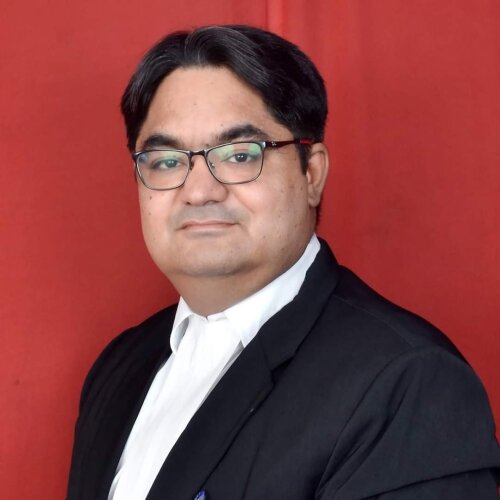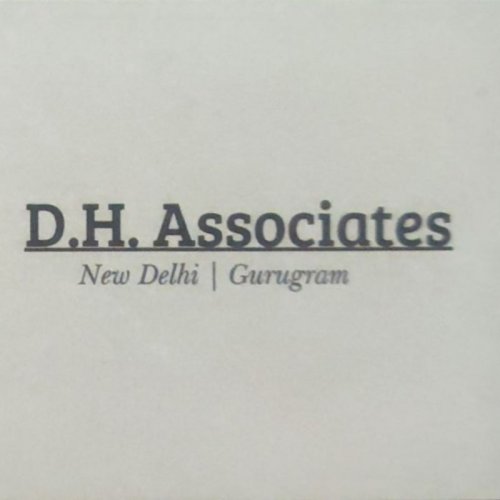Best Family Lawyers in New Delhi
Share your needs with us, get contacted by law firms.
Free. Takes 2 min.
Free Guide to Hiring a Family Lawyer
List of the best lawyers in New Delhi, India
India Family Legal Questions answered by Lawyers
Browse our 10 legal questions about Family in India and read the lawyer answers, or ask your own questions for free.
- I need consultation about whether divorce is a right decision for me not after physical abuse by my husband
- It’s been 1 and half years of my marriage my husband has abused me physically he had slapped me and hit me with belt. Although it’s the first time he’s abused me physically but during these 1 and half years of my relationship he has told me 2 or 3... Read more →
-
Lawyer answer by Qadeer Ahmad Siddiqi Law Associates
I’m truly sorry to hear what you’ve experienced. No one deserves to face physical or emotional abuse in marriage. Even a single incident of violence is taken very seriously under Pakistani law, and repeated threats or abandonment can also amount...
Read full answer - Do you assist with catholic marriage
- Resignation and also assist with church marriage
-
Lawyer answer by mohammad mehdi ghanbari
Hello, good morning Of course, I can assist you with information on how to professionally resign from a job and the requirements for a Catholic marriage. Resigning From a Job When resigning from a job, it is important to do...
Read full answer - Is it possible in same day inter religion marriage
- Is it possible in same day inter religion marriage there
-
Lawyer answer by mohammad mehdi ghanbari
Hello, good morning. Yes, it is possible to have an inter-religious marriage on the same day, but it largely depends on the laws of the country where the marriage takes place and the specific religions of the couple. Some countries...
Read full answer
India Family Legal Articles
Browse our 3 legal articles about Family in India written by expert lawyers.
- A Layman’s Guide to a Landmark Ruling on Rights of Divorced Muslim Women
- The Supreme Court of India, on 2 December 2025, delivered a judgment that carries deep significance for Muslim women across the country. The case, Rousanara Begum v. S.K. Salahuddin (2025 INSC 1375) SC Judgment of 2Dec2025, concerned a simple yet socially important question:When gifts such as cash, gold, or household... Read more →
- Delhi High Court Prescribes Prioritising Human-centric approach in granting Maintenance in Matrimonial Disputes
- The recent Judgment of the High Court of Delhi delivered on 29th October 2025 by Dr. Justice Swarana Kanta Sharma is more than just a legal ruling; it is a humane commentary on the social realities surrounding “payment of maintenance” disputes. While the case arose from a husband’s challenge to... Read more →
- Alimony under Section 25 of the Hindu Marriage Act — A Concise Survey of Law and Recent Authoritative Pronouncements by the Hon’ble Supreme Court of India and High Court of Delhi
- The present article surveys the contours of Section 25 of the Hindu Marriage Act, 1955 (HMA), which empowers matrimonial courts “exercising jurisdiction under this Act” to award permanent alimony and maintenance either at the time of passing any decree or at any point thereafter.This provision is one of the most... Read more →
About Family Law in New Delhi, India
Family law in New Delhi, India governs legal matters related to family relationships, marriage, divorce, child custody, property division, and more. It encompasses various laws and regulations that aim to protect the rights and interests of individuals within the family unit.
Why You May Need a Lawyer
There are several situations where seeking legal advice from a lawyer specializing in family law can be beneficial:
- If you are considering divorce or separation and need assistance with property division, child custody, or spousal support.
- If you are facing domestic violence or abuse and require a restraining order for your protection.
- If you want to adopt a child and need guidance through the legal process.
- If you have legal concerns regarding marriage, such as drafting prenuptial agreements or resolving issues related to dowry.
- If you are dealing with inheritance disputes or property rights within the family.
Local Laws Overview
Family law in New Delhi is primarily governed by the Hindu Marriage Act, Special Marriage Act, Guardians and Wards Act, and Indian Succession Act. It is important to note that personal laws differ based on religious affiliations, and different laws apply to Hindus, Muslims, Christians, and other communities. Some key aspects of local family laws in New Delhi include:
- Divorce: Both mutual consent and contested divorce options are available. Grounds for divorce include cruelty, desertion, adultery, conversion to a different religion, mental illness, and more.
- Child Custody: The welfare of the child is the primary consideration. The court determines custody based on the child's best interests, taking into account factors such as age, education, and the child's wishes.
- Property Division: Property acquired jointly or individually during marriage can be divided equitably between spouses in the event of divorce or separation.
- Adoption: Adoption procedures are governed by the Adoption Regulations, and prospective parents must fulfill specific eligibility criteria and follow legal requirements.
Frequently Asked Questions
Q: How long does it take to obtain a divorce in New Delhi?
The duration of divorce proceedings can vary depending on several factors, such as the complexity of the case, mutual agreement between spouses, and court availability. On average, it can take six months to a few years to finalize a divorce.
Q: What factors does the court consider while determining child custody?
The court considers various factors, including the child's age, health, education, and overall welfare. The child's wishes, if they are mature enough to express them, may also be taken into account.
Q: Do I need a lawyer for a mutual consent divorce?
Hiring a lawyer is not mandatory, but it is always advisable to seek legal advice to ensure your rights and interests are protected during the divorce process, especially while settling financial matters, child custody, and property division.
Q: Can a person of a different religion marry under Indian law?
Yes, the Special Marriage Act allows couples of different religions or nationalities to marry in India. The Act provides a legal framework for such marriages and requires specific documentation and procedures to be followed.
Q: Are there any alternatives to court litigation for family disputes?
Yes, alternatives to court litigation, such as mediation and arbitration, are encouraged for resolving family disputes amicably. These methods can often be less time-consuming, less adversarial, and more cost-effective compared to traditional court proceedings.
Additional Resources
If you need further information or assistance regarding family law matters in New Delhi, you may find the following resources helpful:
- National Commission for Women (www.ncw.nic.in): Provides support and resources for women facing family-related issues.
- Delhi State Legal Services Authority (www.dslsa.org): Offers free legal aid and services to the underprivileged and those in need.
- Delhi High Court website (delhihighcourt.nic.in): Provides access to judgments, rules, and other legal resources related to family law.
Next Steps
If you require legal assistance in family matters in New Delhi, consider taking the following steps:
- Identify the specific issue you need help with, such as divorce, child custody, or adoption.
- Research and shortlist lawyers specializing in family law in New Delhi.
- Schedule consultations with a few lawyers to discuss your case and understand their approach and fees.
- Select a lawyer whom you feel comfortable working with and who has experience in handling cases similar to yours.
- Collaborate with your chosen lawyer to gather necessary documents, provide relevant information, and follow their guidance throughout the legal process.
Lawzana helps you find the best lawyers and law firms in New Delhi through a curated and pre-screened list of qualified legal professionals. Our platform offers rankings and detailed profiles of attorneys and law firms, allowing you to compare based on practice areas, including Family, experience, and client feedback.
Each profile includes a description of the firm's areas of practice, client reviews, team members and partners, year of establishment, spoken languages, office locations, contact information, social media presence, and any published articles or resources. Most firms on our platform speak English and are experienced in both local and international legal matters.
Get a quote from top-rated law firms in New Delhi, India — quickly, securely, and without unnecessary hassle.
Disclaimer:
The information provided on this page is for general informational purposes only and does not constitute legal advice. While we strive to ensure the accuracy and relevance of the content, legal information may change over time, and interpretations of the law can vary. You should always consult with a qualified legal professional for advice specific to your situation.
We disclaim all liability for actions taken or not taken based on the content of this page. If you believe any information is incorrect or outdated, please contact us, and we will review and update it where appropriate.
Browse family law firms by service in New Delhi, India
New Delhi, India Attorneys in related practice areas.

















